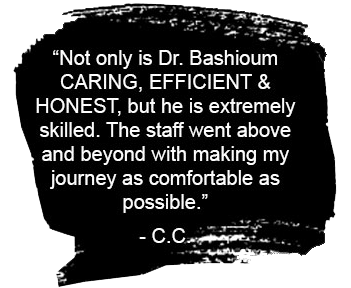Too Much Good Stuff – Body Dysmorphic Disorder
September 23rd, 2009
Cosmetic surgery addiction or habituation does occur more frequently than one would expect. At least it appears that way in the media. Websites are full of individuals who have chosen too much plastic surgery. Also featured are people that have chosen procedures which have left them with an unnatural physical appearance, either by design or because of a poor result. I think these situations are related.
The first person who comes to mind is the late Michael Jackson. Throughout his life he underwent a metamorphosis each year toward a more bizarre facial appearance. By examining successive photos, it is impossible to figure out precisely what he had done. Obviously he had multiple nose surgeries. He has also had a variety of facial skin tightening/whitening procedures along with a myriad of facial implants and injections. I really think he suffered the full expression of “body dysmorphic syndrome.” “Body dysmorphic disorder is a mental illness also known as imagined ugliness. It’s just that – a person sees physical flaws that either too slight or nonexistent for anyone else to notice…” The term imagined ugliness perfectly describes this condition. Michael Jackson imagined himself ugly and most likely sought out cosmetic surgeries and treatments in an effort to alleviate his mental anguish. As it has been reported, he also sought some type of escape by abusing numerous prescription drugs. In a way he traded his probable psychiatric diagnosis (socially unacceptable) for a surgical procedures (socially acceptable). Arguably the cosmetic surgery procedures provided him with the publicity he craved and attention he needed on a continued and ongoing basis.
It is unfortunate that he surrounded himself with an entourage that did very little in his best interest, except to simply enable his unhealthy choices and line their own pockets.
Tomorrow I will discuss Jocelyn Wildenstein, known as the “Cat Woman” of New York because of her peculiar desire to look like a cat.
Recreational Diprovan
July 6th, 2009
General anesthesia is used in my operating room to complete cosmetic surgeries like breast enlargement, tummy tucks, and liposuction. There are many drugs used in during these cases. They can be categorized by how they work. Muscle relaxants paralyze muscle tissue. Narcotics help reduce pain. Vasopressors restore low blood pressure. General anesthetic agents induce sleep and maintain the sleep state during anesthesia.
There are two main general anesthetic agents that I use. One is a gas called Ultane (sevoflurane). It is administered by trained professional medical staff through a breathing tube through the lungs. The other is Diprivan or propofol.
Diprovan is administered through the vein. It is frequently used to induce sleep in the operating room, intensive care unit, and emergency room. Patients may stop breathing when Diprovan is given. In all of the settings where Diprovan is used appropriately, the medical staff has the training and capacity to care for this cessation of breathing when it occurs. Accredited surgical facilities must have this capacity.
Prior to this past week, I was unaware of ANY use of Diprovan outside the clinical settings that include access to immediate breathing support. We procure this drug through our medication provider. It is certainly not part of any formulary outside hospitals or surgery clinics. You simply cannot go to your local pharmacy to fill a prescription for Diprovan. They do not have it! So, how Jackson supposedly gained access to it remains for law enforcement to figure out.
Recreational use of Diprovan obviously is extremely dangerous. Yet I can understand its appeal. Many patients who awaken after surgery where Diprovan was the only general anesthetic agent used, report extreme euphoria and pleasure. Still, I am shocked at the reports of the possible use of Diprovan by Michael Jackson. I will be truly dismayed if his personal medical staff were complicit in accessing the drug and facilitated its use by Jackson. It is my opinion that this would be a devastating embarrassment for most American physicians who take an oath when becoming doctors, “to do no harm.” Jackson’s untimely death is a tragedy that most likely could have been prevented.
